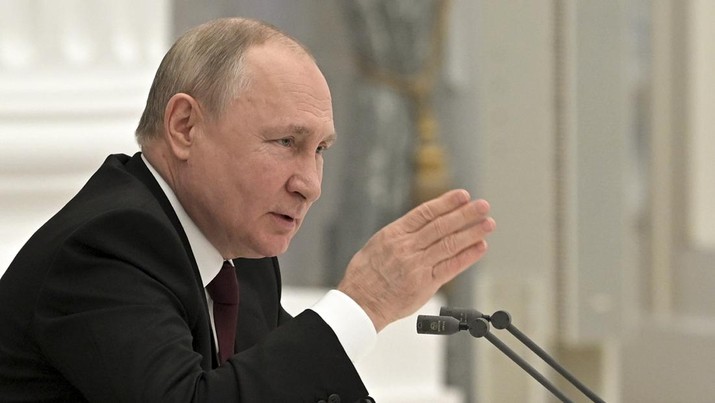
STRATEGIC ASSESSMENT- For nearly two decades, Russian President Vladimir Putin watched as the U.S. military fought counterinsurgencies in Iraq and Afghanistan. Bogged down by guerrillas and a range of irregular forces, including terrorists and insurgents, U.S. soldiers were killed and maimed by ambushes, roadside bombs, and suicide attacks. Fighting two counterinsurgencies at the same time severely restricted American bandwidth and, some would argue, left Washington unprepared to deal with the rise of near peer competitors, most notably China.
Meanwhile, Putin was hailed as a master strategist, even as he launched invasions of Georgia and Crimea, as well as sending the Russian military to Syria to prop up the regime of longtime Kremlin ally Bashar al-Assad. Working alongside Hezbollah, Iranian trainers and advisers, and Syrian military forces, Russia has mercilessly bombed Syria from the air, following the same scorched earth strategy it has adhered to in Ukraine, deliberately targeting civilians and wantonly destroying critical infrastructure.
With each American misstep, Russia sought to take advantage and increase Moscow’s influence abroad. Under Putin, Russia has increased its reach in Latin America, working closely with Venezuelan strongman Nicolas Maduro. In Libya, Russia has backed the warlord Khalifa Haftar, even sending mercenaries from the Wagner Group to fight alongside Libyan militias.
Wherever a power vacuum appeared, Putin seemed ready to pounce, even as he mostly eschewed getting bogged down in costly conflicts. But five weeks into its unprovoked invasion of Ukraine, the Russian military is performing poorly, and some analysts believe the war may transition from a conventional conflict into an insurgency in the near future. If this does come to fruition, Russia will soon experience what it observed the United States face in operations in the Middle East and South Asia, except the situation in Ukraine is far more volatile.
The Ukrainian military is far more capable than were insurgents in either Iraq or Afghanistan, and NATO countries are providing massive quantities of sophisticated weapons to Ukraine, including javelin anti-tank missiles, stinger missiles, and switchblade drone loitering munitions. The United States and its NATO allies have also been providing covert support to Ukraine and now have trainers and advisers in Poland to further advance the relationship.
Because of the level and sophistication of support to Ukraine, it makes it far less likely that Moscow will seek to engage in conventional or unconventional war for an extended period of time. In terms of manpower, equipment, and vehicles, it is simply cost prohibitive for the Russians to engage in a long-running asymmetric war against the Ukrainians. Any “victory” the Russians envision will be a pyrrhic one, as the Ukrainians adroitly pursue a strategy of “death by a thousand paper cuts,” waging a war of attrition against a far more powerful adversary.
The Russian military lost more troops in the first two weeks of the conflict in Ukraine than U.S. forces did over the course of twenty years in Afghanistan. An estimated 2,448 U.S. servicemembers were killed in Afghanistan over twenty years. Some estimates suggest that Russia has now lost between 7,000 and 15,000 troops fighting in Ukraine.
The Russians have also lost several high-ranking officers, including numerous generals killed on the battlefield. For NATO, Putin’s blunder presents a rare opportunity to bleed Russian forces and constrict Russia’s freedom to maneuver in theatres outside of its immediate near abroad. Wagner Group mercenaries are being recalled from Libya, Mali, and elsewhere, and given the enormity of the challenge facing the Russian military, Moscow is focusing all of its resources on the conflict in Ukraine. Russia’s presence in Syria will be impacted, which could in turn open the door for Tehran to exert more influence.
To be sure, Russia has waged successful counterinsurgencies in Chechnya, Dagestan, and other parts of the Caucasus, but the situation in Ukraine is significantly different. Unless Putin reconsiders his ill-fated foray into Ukraine, the Russian military will be decimated in any long-running insurgency against a determined, highly capable, and well-equipped foe (TSC).





